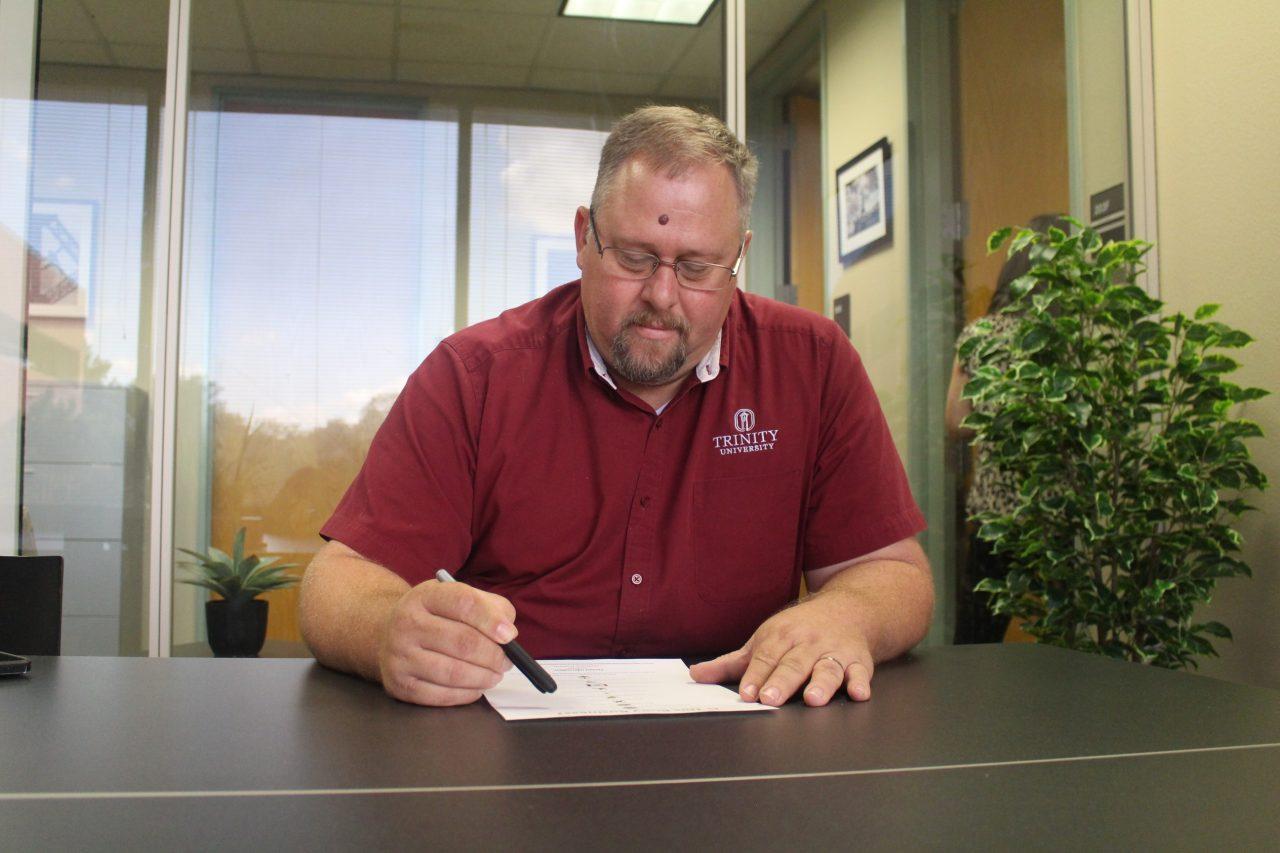Photo by Mona Mirpour
Buildings and resources on campus are reserved solely for the Trinity University community, unless permission is otherwise granted to outsiders.
Though a private institution, Trinity University also functions as an open campus. Being a private university means that the facilities on campus are reserved for Trinity faculty, staff and students; the university is an open campus only because it has no walls or gates closing off all of campus. Therefore, members from outside the community are able to walk through campus but not allowed to use certain campus spaces.
“We want to be good community stewards and good community companions. We don’t want to put walls up and signs up that say ‘stay out.’ But at the same time, there are policies about certain spaces that those are Trinity facilities and that those facilities are not open to the public,” said Ivan Pendergast, emergency management coordinator.
TUPD constantly monitors both the open and restricted places on campus, focusing on the restricted places as outside community members are not allowed in those spaces.
“When we’re monitoring campus it’s not like we’re profiling people. We get a call from a student about suspicious activity, and we’ll check it out,” said Pete Perez, assistant police chief. “But major athletics facilities are some we keep an eye on. Athletics wants them to be utilized only by students, faculty and staff, so we check in on those often.”
However, external entities are able to use campus facilities if they are in connection to a student organization or have special permission from Conferences and Special Programs.
“For external events, Trinity’s policy is to only rent to non-profit organizations. They are typically unaffiliated with anything going on in the university campus, they are just looking for a variety of meeting places, whether its for training or board meetings,” said Justin Michaelson, associate director of Conferences and Special Programs.
Student organizations who wish to host any outside entities, such as MOVE, a nonprofit that encourages civic engagement, must submit an event information form to Shannon Twumasi, coordinator for student programs with the office of Student Involvement. The organization must meet with Twumasi and receive her approval before hosting the event.
“The reason why we talk through it is, one, so we can put any risk mitigations on the event. The other reason why is because we have seen in the past, sometimes, that external partners might try to use the student organization for space on campus because if you’re an outside partner you do have to pay unless you’re going through a student organization,” Twumasi said.
Certain outside entities may be considered elevated-risk events. This could be due to contracts, insurance, TUPD presence, as well as other risks. In this situation, the Event Review Committee (ERC) will be reached out to for additional guidance.
“Any student organization event goes through [Twumasi], and she does a great job of working with the organization to help facilitate all those pieces that need to go together,” said Pendergast, who is a co-chair on the ERC. “When Shannon feels that there’s an added piece to that that might pose some concern to the university, that’s when she brings it to ERC.”
Twumasi works with the other ERC members to figure out how to prepare for all possible risks. Together they will come up with solutions and recommendations based on the Facility Use Policy.
“A lot of the time it’s just a matter of educating the group that’s wanting to have the event about the things that they need to do in order to do it and to meet those policies or regulations that may be there,” Pendergast said.
Twumasi explained that the goal of the process is to always be able to bring in outside speakers and panelists.
“Some events may require more than others, especially when we have a well-known speaker or lecturer, but at the end of the day, we want to ensure that events happen. So we’re going to work together to create a plan of action in terms of risk mitigation to ensure that these events happen. I think we do a good job at working with campus partners to ensure that the event is safe and that it happens,” Twumasi said.







